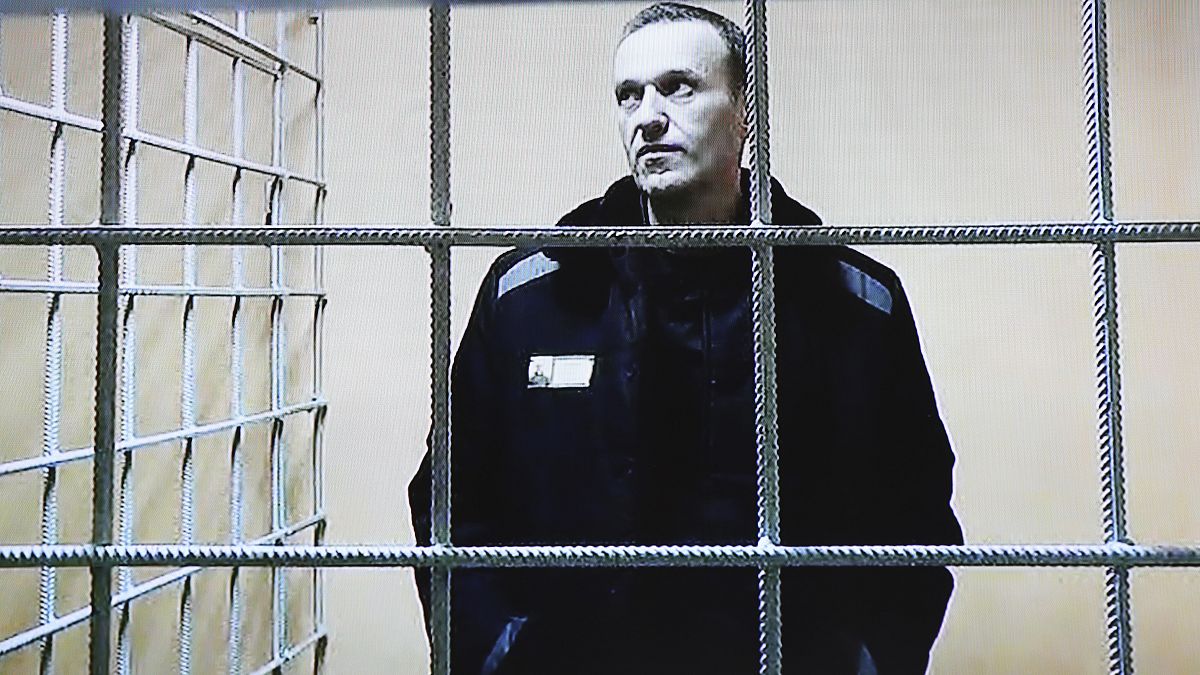The decision means Navalny and his aides have had their bank accounts frozen.
The European Union on Tuesday condemned a move by Russian authorities to add imprisoned opposition leader Alexei Navalny and some of his top allies to the registry of terrorists and extremists.
EU foreign affairs spokesman Peter Stano said this latest move in a multi-pronged crackdown on opposition supporters, independent media and human rights activists was "not acceptable" and part of "continued repression against the critical voices in Russian society".
Earlier in the day Navalny -- who has been imprisoned for more than a year -- was added to an official list of "terrorists and extremists" by Moscow, alongside some of his allies.
The decision by Russia's Federal Financial Monitoring Service means his bank accounts will be frozen under Russian law. The Taliban and the so-called Islamic State are among those on the list.
It is the latest move in a months-long crackdown on Russia's opposition, as well as independent media and human rights activists.
Eight of Navalny's top aides — including Georgy Alburov and exiled Lyubov Sobol — were also added to the registry. Two other allies of the Kremlin critic had already been added to the list earlier this month.
"I'm proud to work in our fine team of 'extremists and terrorists'," Navalny's chief of staff Leonid Volkov said on Facebook.
"By devaluing the meaning of words and turning their meaning inside out, the Kremlin is digging a deeper hole for itself. It's doing all it can to make those who still believe Putin stop believing him."
Navalny was arrested upon arrival from Germany in January 2021, after he had spent five months recovering from a poisoning that he blamed on the Kremlin. Russian authorities have denied any involvement.
He was ordered to serve two-and-a-half years in prison for violating the terms of a suspended sentence stemming from a 2014 fraud conviction. Navalny says the charges are political.
His arrest triggered a wave of unprecedented protests across Russian cities and a subsequent crackdown by Moscow.
Navalny's Foundation for Fighting Corruption was outlawed as "extremist" last April and their operations were halted. Dozens of human rights groups and independent media have also been labelled as foreign agents, meaning they face additional government scrutiny.
On Tuesday, Russian authorities petitioned for Navalny's brother Oleg to serve his one-year suspended sentence in prison. Last year Oleg, together with his brother's top allies, was convicted of violating coronavirus regulations over the protests in support of the opposition leader.
The crackdown on Alexei Navalny and other dissenting voices in Russia has led to fresh sanctions and outrage from the European Union and the West.
Last year, the European Parliament awarded Navalny the Sakharov Prize for Freedom of Thought after he was nominated but passed over for the Nobel Peace Prize.
